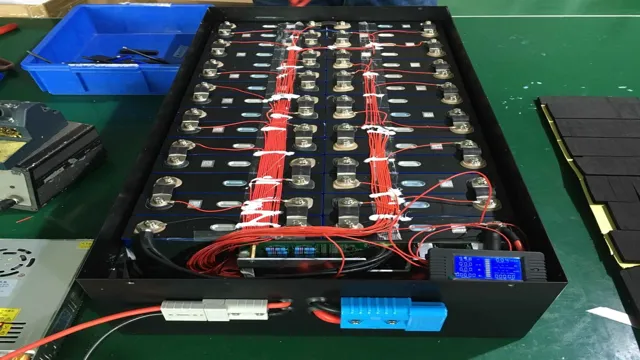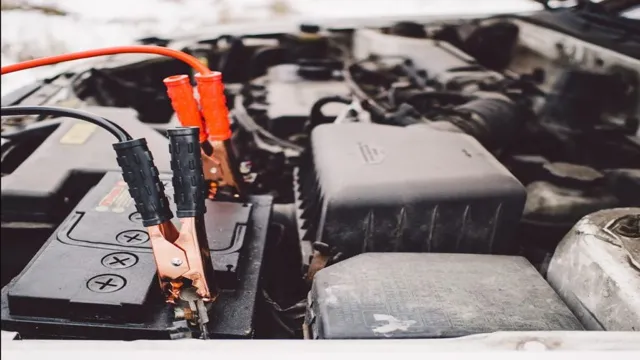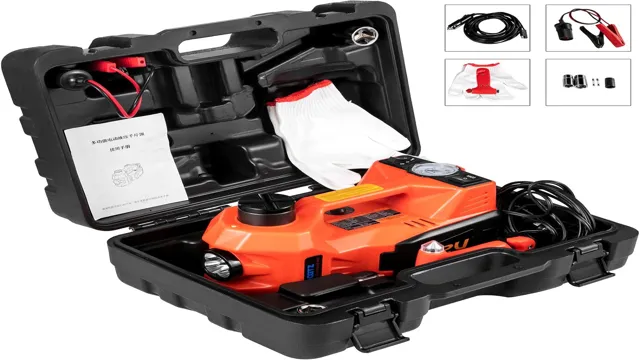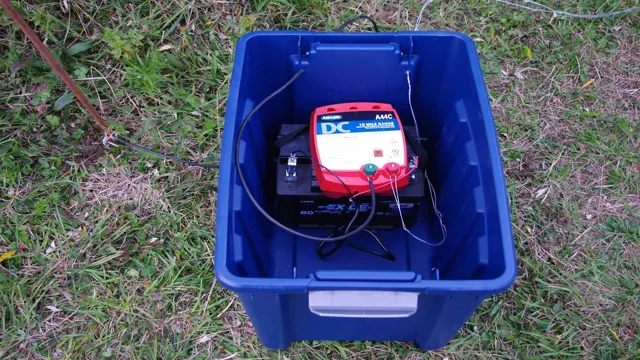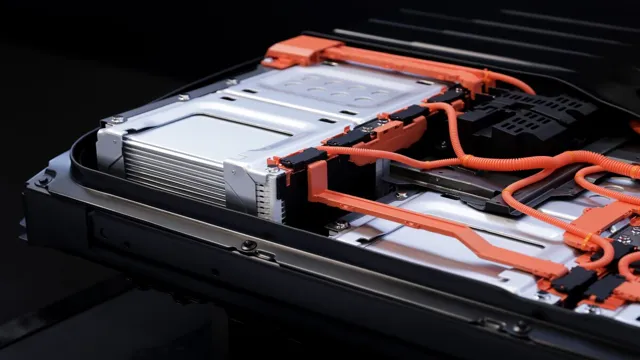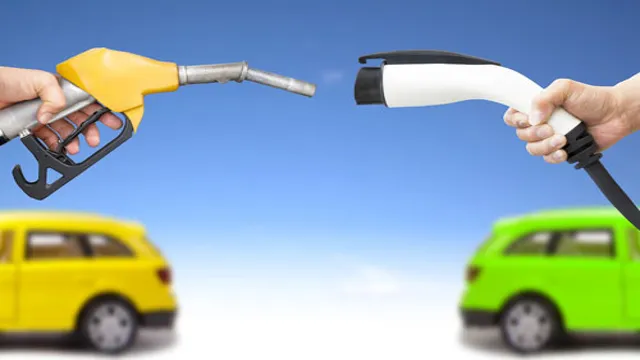Exploring the Waterproofing of Electric Car Batteries: Are They Safe to Drive in All Conditions?
Electric cars are becoming increasingly popular nowadays, with more and more people turning to eco-friendly vehicles that require less maintenance and emit fewer pollutants. One of the most important parts of an electric car is the battery, which powers the vehicle and determines its range. However, many people are unsure about whether electric car batteries are waterproof or not.
After all, electric cars run on electricity, which can be dangerous when exposed to water. In this blog post, we will take a closer look at this question and provide some valuable insights for electric car owners and enthusiasts.
Understanding Electric Car Batteries
One of the most common questions people have regarding electric cars is whether their batteries are waterproof. The answer is yes, they are! Electric car batteries are sealed in a waterproof casing, and some models even have additional protections to ensure they can withstand extreme weather conditions. However, it’s important to note that while the batteries themselves are waterproof, the rest of the vehicle may not be.
It’s still important to take appropriate precautions when driving in heavy rain or flooding. Additionally, regular maintenance and inspection of the battery are crucial to ensure it continues working properly and doesn’t suffer any damage from water or other factors. So, if you’re worried about an electric car’s battery being damaged by water, rest assured that it’s one less thing you need to worry about.
Construction of Electric Car Batteries
Electric car batteries have become an essential component of modern vehicles, powering them with electricity rather than fossil fuels. Understanding how these batteries work is crucial to appreciate their efficiency and eco-friendliness. Electric car batteries are rechargeable power cells that store energy from an electric power source, such as a charging station or solar panels.
The batteries are made up of several individual battery cells, each consisting of a cathode, an anode, and an electrolyte. When the battery is charged, electrons flow from the anode to the cathode through the electrolyte, creating a chemical reaction that stores energy. When the battery is discharged, the process is reversed, and the energy is used to power the electric motor.
The construction of electric car batteries requires carefully selecting materials that can store and transfer energy efficiently while remaining safe and durable. Understanding the mechanics behind electric car batteries can help you appreciate the technological advancements made in modern-day transportation.
How Electric Car Batteries Work
Electric car batteries are at the core of what makes electric cars so environmentally friendly and energy-efficient. Unlike traditional gasoline engines that require oil and gas to function, electric car batteries rely on electricity to power the vehicle. These batteries store electricity and use it to fuel the motor and move the car.
They come in different types such as lithium-ion, nickel-metal hydride, and lead-acid. The lithium-ion battery is the most popular and widely used in electric cars because it is lightweight, has high energy density, and can be recharged quickly. Electric car batteries are an essential component of electric cars, and understanding how they work is crucial to maximizing their performance and efficiency.
Waterproofing of Electric Car Batteries
Electric car batteries are not inherently waterproof, but they are designed to be protected against water damage. One of the biggest concerns with electric cars is ensuring that the battery remains safe and functional even in wet conditions. Many electric car manufacturers have developed advanced waterproofing technologies to ensure that their battery cells are well-protected against moisture.
For example, some manufacturers include water-resistant coatings on the battery cells or use specialized waterproof enclosures to house the battery pack. In addition, many electric car batteries are designed to be installed in specific locations in the vehicle where they are less likely to come into contact with water or other liquids. While no battery is completely immune to water damage, electric car batteries are generally considered to be quite durable and reliable, even in wet or harsh environments.
As electric vehicles become more popular, it is likely that we will see even more advanced waterproofing technologies developed to keep these batteries safe and functional for years to come.
IP Rating of Electric Car Batteries
“waterproofing electric car batteries” Electric car batteries have become a hot topic in recent years, especially when it comes to their waterproofing capabilities. With the increasing demand for electric vehicles, manufacturers are constantly striving to enhance the safety and durability of their car batteries. The waterproofing of electric car batteries is crucial in ensuring their long-term performance and reliability.
In fact, the IP rating of electric car batteries has become a key consideration for consumers when choosing an electric vehicle. An IP (Ingress Protection) rating denotes the level of protection an electrical device has against dust and water. The higher the rating, the better the protection against the ingress of water.
Electric car batteries typically have an IP rating of at least IP67, which means they can withstand being submerged in up to one meter of water for up to 30 minutes without being damaged. This level of waterproofing ensures that electric cars can be driven safely in wet conditions and improves the overall durability of the battery.
Impact of Water Exposure on Electric Car Batteries
As electric cars become more popular, concerns about the impact of water exposure on their batteries have emerged. Electric car batteries are generally designed to be waterproof to protect against moisture, which can cause damage to the battery cells and reduce their efficiency. Without proper waterproofing, water can cause corrosion to the battery terminals and lead to a shortened lifespan of the battery pack.
Manufacturers of electric cars have taken measures to address this concern, such as using waterproof seals and coatings to protect the battery pack. In addition, there are now aftermarket products available that can further improve the waterproofing of electric car batteries, which can be especially helpful for those living in areas with high levels of precipitation. As we continue to push towards a more sustainable future with electric cars as a main component, it’s imperative that we consider the impact of water exposure on electric car batteries and take necessary steps to protect them.
Waterproofing Features of Electric Cars
Electric car batteries are highly vulnerable to water and moisture damage, but the good news is that modern electric vehicles come well-equipped with strong waterproofing features. These features are designed to protect the batteries from water and moisture infiltration, which could damage the battery components and reduce their lifespan. The waterproofing features of electric cars are not limited to the battery; they also extend to the electric motors, circuits, and other components that are crucial to the functioning of the vehicle.
Electric car manufacturers take the issue of water and moisture protection seriously, and they invest heavily in research and development to ensure that their cars are equipped with the most advanced waterproofing technologies. With these features in place, electric car owners can drive through rain, snow, and floods with confidence, knowing that their vehicles are well-protected from water damage.
Conclusion: Are Electric Car Batteries Waterproof?
In conclusion, while electric car batteries were not designed for underwater use, they are still relatively water-resistant. However, we do not recommend turning your electric vehicle into a submarine without proper modifications. So, while they may not be fully waterproof, they are definitely more hydrophobic than your average smartphone.
“
Waterproofing Standards of Electric Car Batteries
Ensuring the waterproofing of electric car batteries is crucial to their longevity and performance. In fact, waterproofing is now a standard requirement for all electric car batteries. The IP (Ingress Protection) rating, developed by the International Electrotechnical Commission, is used to classify the level of protection a product has against dust and water.
The higher the number, the better the protection. Most electric car batteries now have a minimum IP rating of 67, meaning they can withstand immersion in water up to one meter deep for 30 minutes. Some newer models even have ratings of 68 or higher.
This level of waterproofing ensures that the battery can withstand harsh weather conditions, such as heavy rain or flooding, without risk of damage. It also provides peace of mind for the car owner, knowing that their battery is protected against water damage and potential safety hazards. Overall, ensuring the waterproofing of electric car batteries is a critical standard that must be met in order to maintain the performance and longevity of the battery, and to ensure the safety of the car and its occupants.
Recommendations for Electric Car Owners
If you own an electric car, it’s important to understand the potential risks associated with battery exposure to water. As electric cars become more commonplace, there have been concerns raised about the dangers of water damage to the car’s battery system. Thankfully, there are now several waterproofing techniques available for electric car batteries to reduce the risk of damage.
One common method involves coating the battery with a protective layer of silicon or a similar material. This helps prevent water from seeping into the battery and causing damage. Another option is to install a waterproof case to surround the entire battery, providing an additional layer of protection against water damage.
It’s important to research which waterproofing technique is best for your specific electric car model. Making sure that your electric car’s battery is properly protected from moisture will help prolong its lifespan and keep your investment safe in the long run.
Final Thoughts: The Future of Electric Cars
When it comes to electric cars, one of the most common questions is whether or not the batteries are waterproof. The answer is that it depends on the specific model and manufacturer. Some electric car batteries are designed to be waterproof, while others are not.
Waterproofing is important because electric cars typically have batteries that are located underneath the vehicle, which makes them vulnerable to damage from water and other elements. If the battery is not waterproof, it can be damaged by rain, snow, and other forms of moisture. This could lead to decreased performance, reduced range, and even safety issues.
However, many electric car manufacturers are taking steps to ensure that their batteries are waterproof. This includes sealing the battery casing and protecting it from the elements. So, if you’re considering purchasing an electric car, be sure to research the model and manufacturer to find out if the battery is waterproof.
In general, it’s a good idea to choose a car with a waterproof battery to ensure that your investment is protected and that you can drive your car safely in a variety of weather conditions.
FAQs
What is an electric car battery made of?
An electric car battery is usually made of lithium-ion cells enclosed in a metal casing.
How long does an electric car battery last?
The lifespan of an electric car battery depends on various factors, such as usage and maintenance. Typically, it can last for 8-10 years or up to 200,000 miles.
Are electric car batteries waterproof?
Yes, most electric car batteries are designed to be water-resistant, but they are not completely waterproof. Excessive exposure to water can damage the battery and reduce its performance.
Can an electric car battery catch fire?
Like any other battery, an electric car battery can catch fire in rare cases. However, electric car manufacturers follow strict safety protocols and use advanced cooling systems to prevent such incidents.
